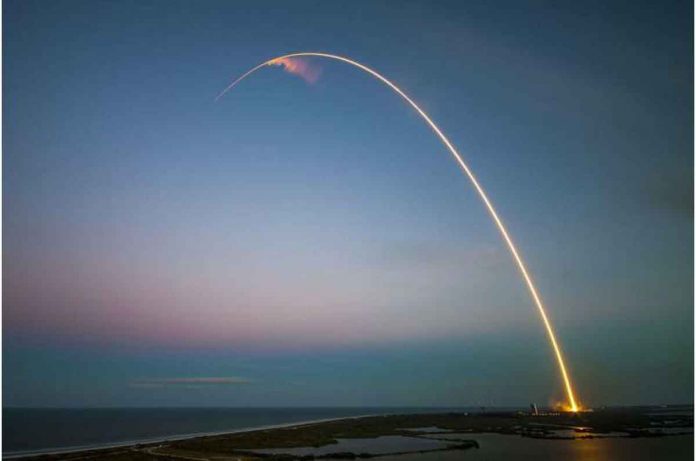Relativity Space, a new rocket company, is preparing for its first-ever launch testing its Terran 1 rocket at Cape Canaveral Space Force Station, and a fire spotted at the launch site prompted its CEO to reassure the public that the rocket was fine.
Images of flames and smoke rising from Launch Complex 16 were posted by a media outlet. Relativity cofounder and CEO Tim Ellis commented on Titusville on Twitter, saying the rocket was fine and the launch pad damage was minor.
“This grass fire was caused by a methane flare stack outside the rocket,” Ellis explained. “The team and rocket are both safe, with little to no pad damage. It’s mostly grass.”
Relativity’s 3D printed rocket arrived at the Space Coast last month from its factory in Long Beach, California, to prepare for a mission dubbed “GLHF,” as in “Good Luck, Have Fun,” which will not carry any customer payloads but will aim to prove it can perform for future missions when it attempts liftoff later this year. A specific launch date has not been set, but previous company statements indicated that it would happen before the end of summer.
Images posted to the company’s Twitter account earlier this week showed the rocket’s first stage preparing for testing on the launch pad.
They are smaller than SpaceX Falcon 9 rockets, but at 110 feet tall with a 7.5-foot-wide fairing, they can carry 2,756 pounds of payload to a 310-mile low-Earth orbit. Terran 1 is disposable, but Terran R, a much larger reusable 3D rocket, is in the works.
The company recently announced a deal with satellite company OneWeb to provide launch services with its Terran R rocket beginning in 2025, to add to OneWeb’s existing constellation of 648 satellites. According to the agreement, Relativity now has $1.2 billion in booked launches.
The US Department of Defense and NASA, which awarded the company $3 million as part of its Venture Class Launch Services Demonstration 2 contract, are among the other customers lined up.
All of Relativity’s initial launches will be from LC-16, which hasn’t flown since 1988 but has been used to test Titan and Pershing missiles as well as Apollo and Gemini programs.
Blue Origin will join SpaceX, United Launch Alliance, and Astra Space, all of which are already active from their respective Cape Canaveral launch pads, with the New Glenn rocket set to make its debut in 2023.

